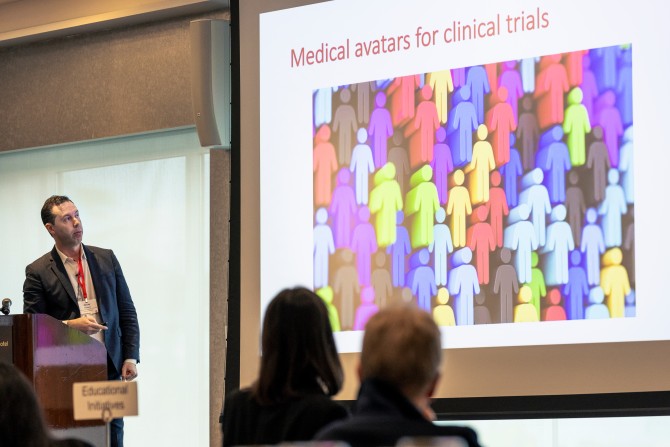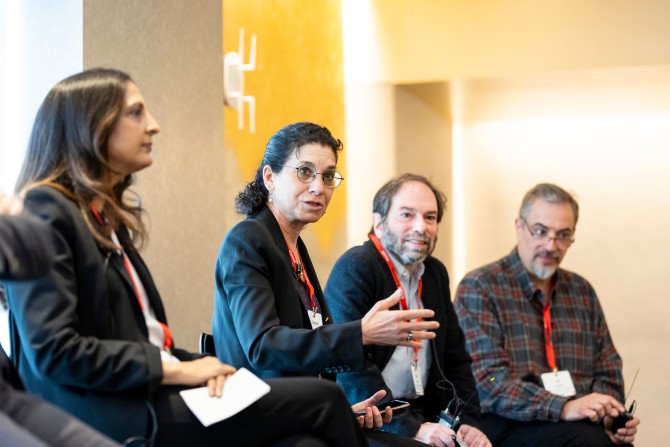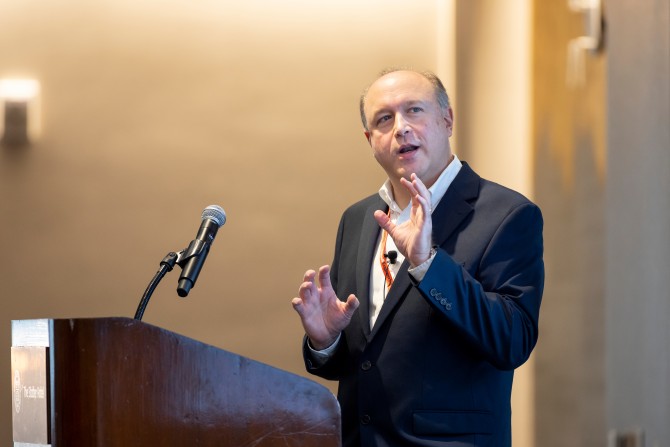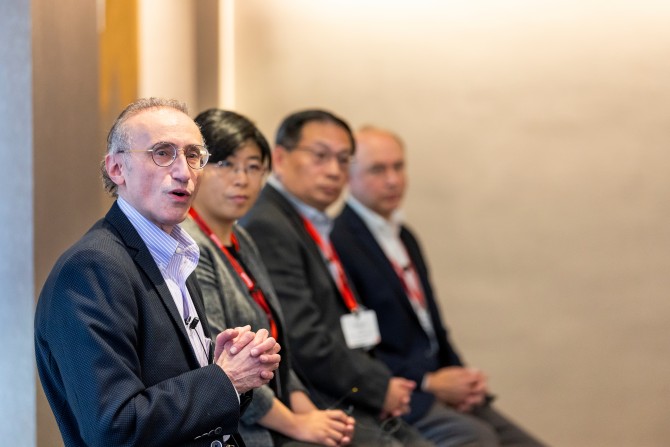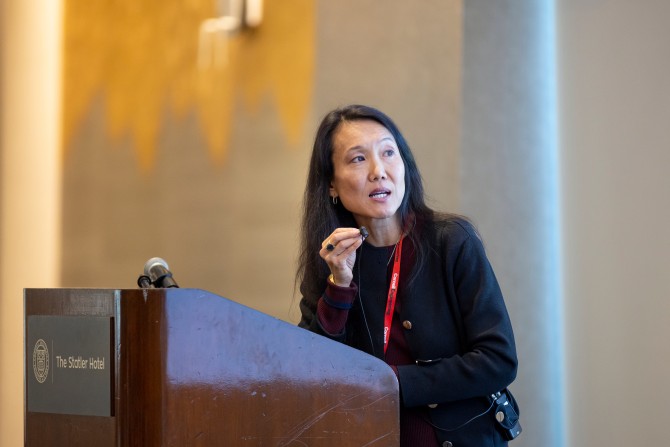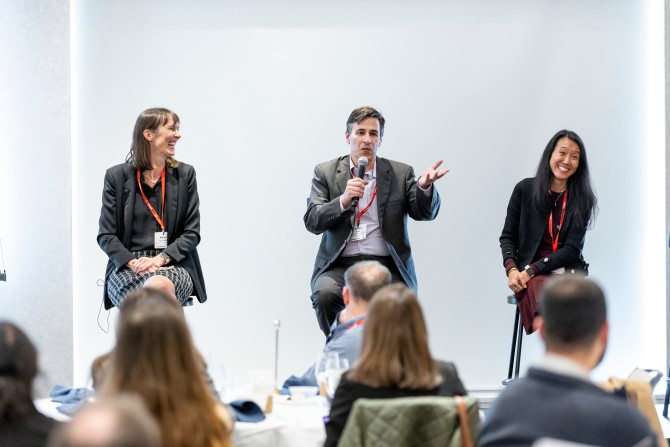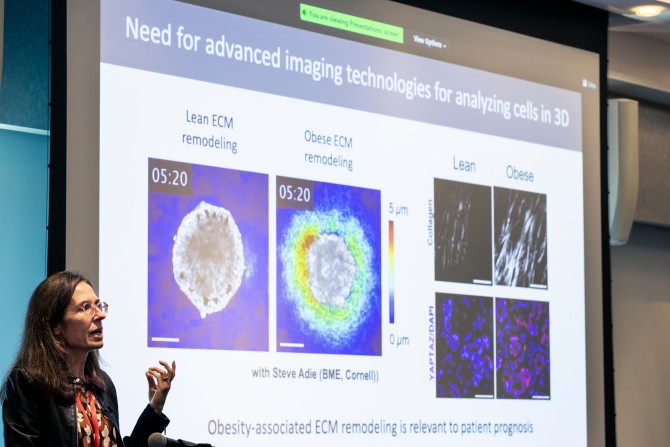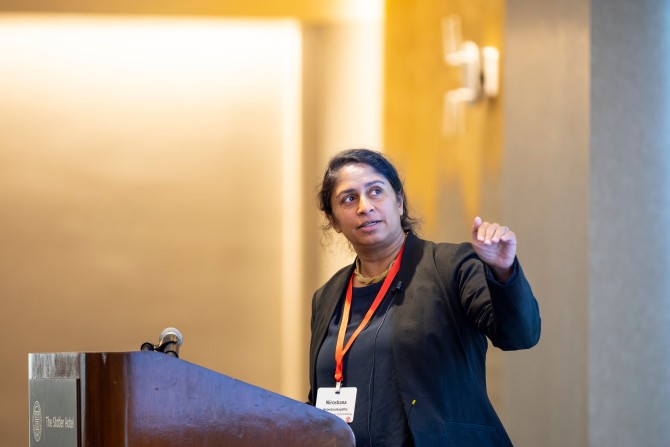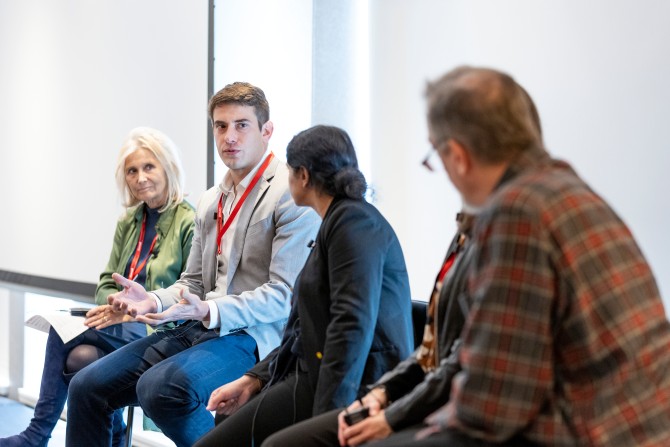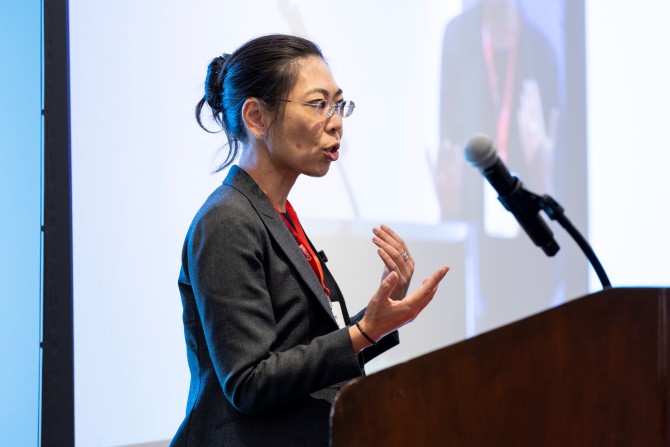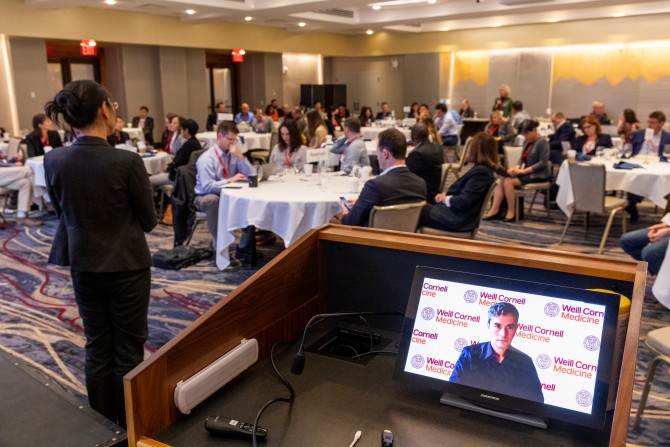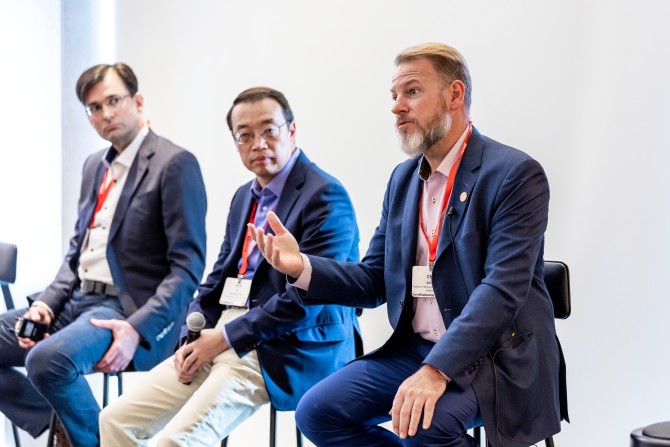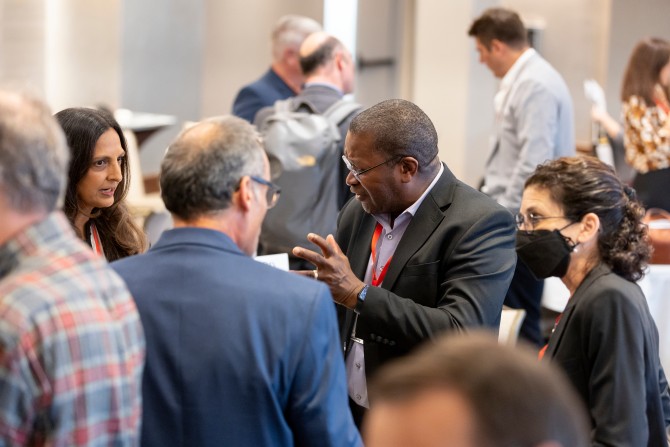News directly from Cornell's colleges and centers
Symposium generates momentum for Engineering Innovations in Medicine
By Reeve Hamilton
Addressing a group of researchers, educators and leaders from diverse academic disciplines and backgrounds in the Statler Ballroom on Oct. 1, Dr. Yoon Kang, senior associate dean for education and the Richard P. Cohen, M.D., Associate Professor of Medical Education at Weill Cornell Medicine, identified the common principle that had motivated them to gather together. “The future of medicine, the future of optimizing health outcomes,” she said, “is data and technology.”
More than 70 faculty from Weill Cornell Medicine, Cornell Engineering and Cornell Tech assembled in Ithaca — and more joined remotely — to kick off the Cornell Engineering Innovations in Medicine (CEIM) initiative. The newly launched effort, which has been identified as a priority by university leadership, aims to meaningfully advance clinical and translational research, as well as develop new educational programs, through unconventional cross-campus partnerships.
“I really believe that we have an opportunity to create a one-of-a kind hub that would bring together Cornell Engineering and Weill Cornell Medicine,” said Emmanuel Giannelis, the inaugural CEIM director, at the opening reception of the weekend-long kickoff symposium. “And we're already talking about expanding to include other partners, here in Ithaca as well as in New York City.”
CEIM has already had some early success: Among the attendees was the initiative’s first M.D.-M.Eng. students. The M.D.-M.Eng. is a new degree program that allows medical students at Weill Cornell Medicine who have completed their third year to pursue a year-long immersion in engineering course work and design projects in Ithaca. Among the first of its kind, the program aims to prepare future M.D.s to practice at the intersection of medicine, data sciences and engineering.
Lynden Archer, the Joseph Silbert Dean of Engineering, noted that the plan had been to admit the first cohort of M.D.-M.Eng. students in Fall 2023, and he was encouraged to see early demand for the unique, cross-disciplinary training the degree program provides.
“This is, frankly, just the beginning of what we see as a robust milieu of educational programming that takes advantage of our incredible faculty, teaching and design studio infrastructure — as well as our Cornell-wide commitment to supporting innovation in how we educate students — to train future generations of clinicians and engineers,” Archer said.
The weekend event marked the beginning of ongoing conversations and work to develop sustainable bridges between collaborators poised to shape the future of medicine and engineering. Building on the momentum provided by the kickoff event, Weill Cornell Medicine and Cornell Engineering leaders are in the early stages of defining engagement mechanisms for faculty, students and research staff intended to make the opportunities at the heart of CEIM part of the culture on both campuses.
Short-term initiatives will focus on bolstering necessary supports — including staffing, housing and access to infrastructure and data — that enable exchanges by faculty and students interested in immersion experiences in laboratories or clinics in New York City or Ithaca. Longer-term efforts will, among other things, focus on jointly hiring faculty who position Cornell for leadership in the early focus areas of the initiative: data-driven medicine, immunoengineering and cancer, tissue engineering and neurotechnology.
Looking further into the future, the CEIM leadership plans to assemble core faculty and programming as part of a disciplined strategy to enhance Cornell’s reputation as a premier institution for education, research and technology innovations that improve clinical care.
“We already have a community of scholars who are innovating at the intersection of engineering and patient care, as evidenced by all of you here today, and we seek to make it even stronger,” said Augustine M. K. Choi, the Stephen and Suzanne Weiss Dean of Weill Cornell Medicine and university provost for medical affairs, at the event. “This is an exciting, emerging field, and we’re proud that Cornell will be leading the way.”
Kickoff Photo Gallery
The following photos provide a glimpse of the sessions at the kickoff event devoted to exploring CEIM’s initial focus areas:
Session 1: Data-Driven Medicine
Session 2: Organoids and Tissue Engineering
Session 3: Educational Initiatives
Session 4: Immunoengineering and Cancer
Session 5: Neurotech
Media Contact
Get Cornell news delivered right to your inbox.
Subscribe